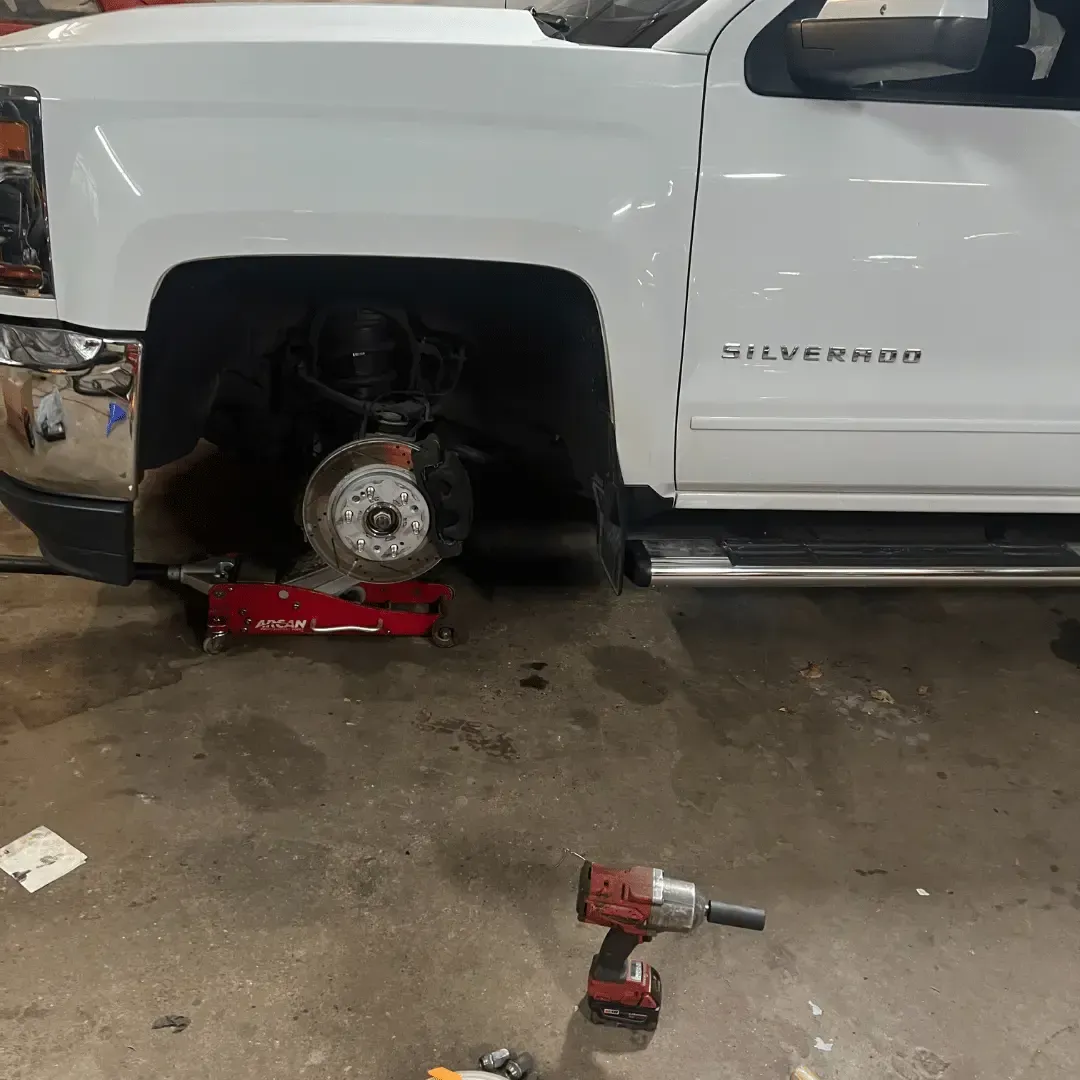Learn More About Auto Repair!

How ABS Works: A Simple Guide to Anti-lock Braking Systems
How ABS Works: A Simple Guide
Learn how Anti-lock Braking Systems (ABS) work to keep you safe. Our simple guide explains ABS essentials for drivers in North Canton, Uniontown, and Hartville, Ohio.
Introduction to Anti-lock Braking Systems
Have you ever wondered how your car stops so smoothly, even when you press the brakes hard? That's thanks to a special safety feature called the Anti-lock Braking System, or ABS. ABS helps drivers stay in control during sudden stops, especially on slippery roads common around North Canton and Uniontown.
What Is ABS?
ABS stands for Anti-lock Braking System. It's a technology in your car that prevents the wheels from locking up when you brake hard. This means the wheels keep turning just enough so you can steer and avoid obstacles.
How Does ABS Work?
ABS uses sensors and computers to do its job. Here's how it works:
Wheel Speed Sensors: Each wheel has a sensor that checks how fast it's turning.
ABS Control Unit: This is the computer that reads the sensors. If it sees a wheel is about to stop turning (lock up), it takes action.
Hydraulic Valves: These parts adjust the brake pressure on each wheel.
When you brake hard, the ABS control unit tells the hydraulic valves to quickly pump the brakes. This happens many times per second! It prevents the wheels from locking and helps you stay in control.
Why Is ABS Important?
ABS is like a superhero for your car's brakes. Here's why it's important:
Keeps You in Control: By preventing wheel lock-up, you can still steer your car during an emergency stop.
Reduces Skidding: Especially on wet or icy roads on the backroads of Hartville and Green, ABS helps prevent dangerous skids.
Enhances Safety: ABS makes driving safer for you and everyone else on the road.
ABS on Different Road Surfaces
ABS works well on most surfaces:
Wet Roads: Helps prevent hydroplaning and skids.
Icy Roads: Offers better control, though stopping distances may still be longer.
Gravel or Loose Roads: ABS may not reduce stopping distance but helps you steer.
Remember, always drive carefully, especially during Ohio's snowy winters!
Common Myths About ABS
There are some misunderstandings about ABS:
Myth: ABS makes you stop faster on all surfaces.
Truth: ABS helps you maintain control but doesn't always shorten stopping distance on loose surfaces.
Myth: You don't need to know how to brake properly if you have ABS.
Truth: Safe driving habits are still very important.
Taking Care of Your ABS
Keeping your ABS in good shape is easy:
Regular Check-ups: Have your brakes inspected during routine maintenance.
Watch for Warning Lights: If the ABS light comes on, get it checked.
Maintain Brake Fluid Levels: Proper fluid levels keep your brakes working well.
ABS and Traction Control
Some cars also have Traction Control Systems (TCS). While ABS helps when you're braking, TCS helps when you're accelerating. Both systems work together to keep your car stable.
ABS vs. Non-ABS Brakes
Before ABS, hard braking could make wheels lock up, causing skids. With ABS, you have better control and a safer driving experience.
The Future of ABS
Car technology keeps improving. Future ABS systems might work even better with other safety features like Electronic Stability Control (ESC). This means even safer roads for everyone!
Got Questions About ABS?
Here are some common questions:
Does ABS need special care?
Just regular maintenance like other car parts.
What if my ABS light comes on?
Visit a mechanic to check it out.
Can I turn off ABS?
ABS is usually always on for your safety.
We're Here to Help
Understanding your car's ABS can make you a safer driver. If you have questions or need help with your brakes, CPR 4 Your Car is here for you. We're proud to serve our neighbors in North Canton, Uniontown, Hartville, Green, and Jackson, Ohio.
Talk to Us Today!
Keep your car running at its best with expert service from CPR 4 Your Car. Our experienced team is ready to help with all your maintenance and repair needs. Contact us today to book an appointment!
We service the surrounding areas of North Canton, Uniontown, Jackson, Green, Canton
Phone:
Email:
Operating Hours:
Mon-Sat 9AM-5PM, Sun Closed
Address:
8373 Cleveland Ave NW Unit A, North Canton, OH 44720
Service Areas:
Copyright © 2024 CPR 4 Your Car | Terms of Service & Privacy
